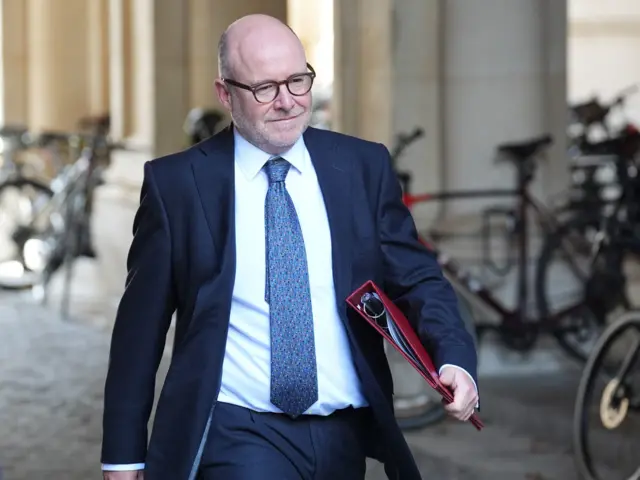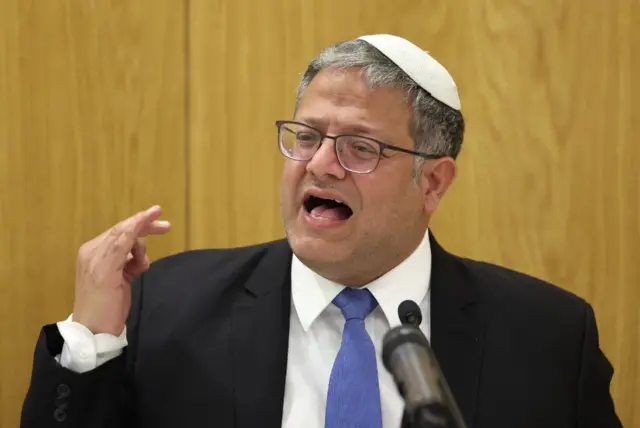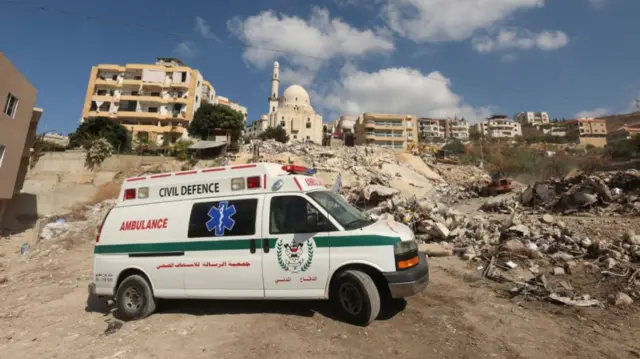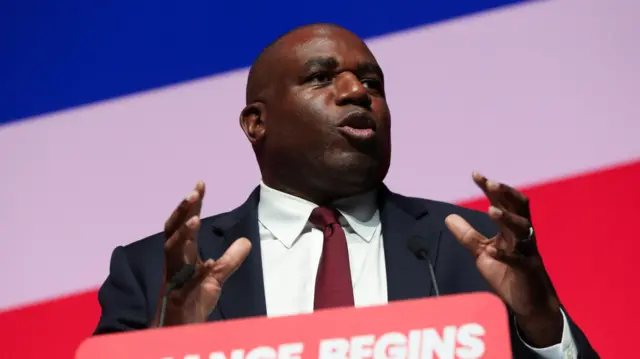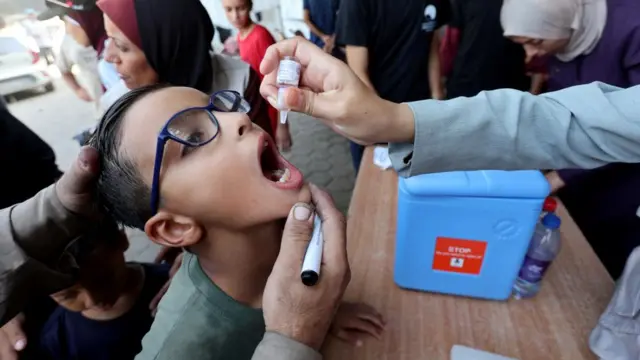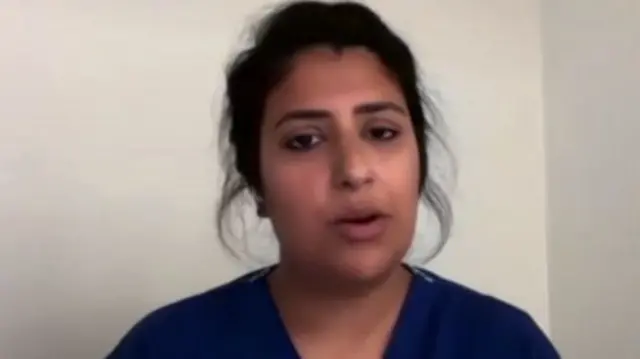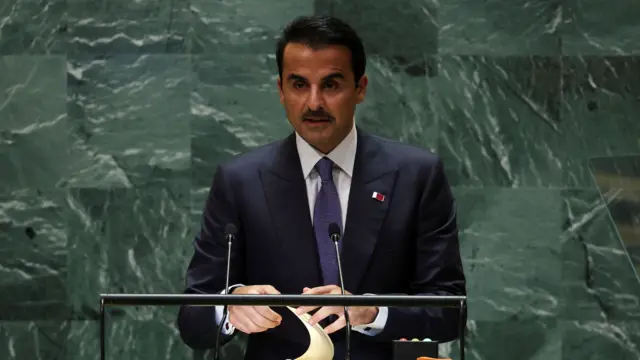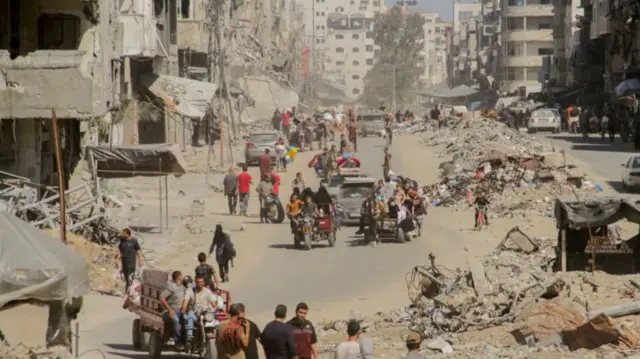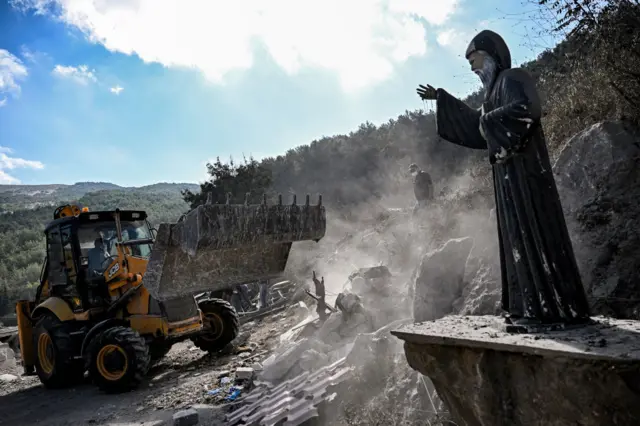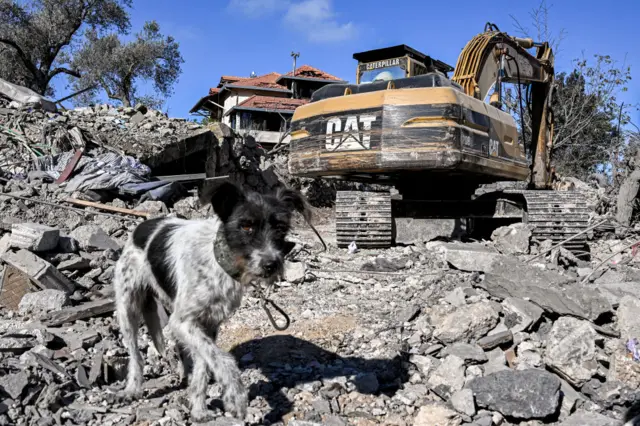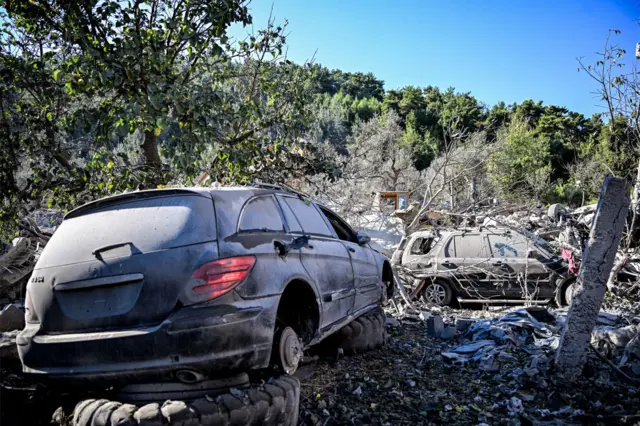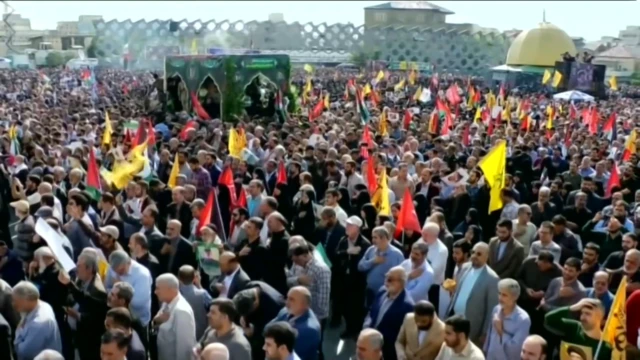More than a quarter of Lebanon under evacuation orders – UNpublished at 13:59 BST 15 October 2024
 Joel Gunter
Joel Gunter
Reporting from Beirut
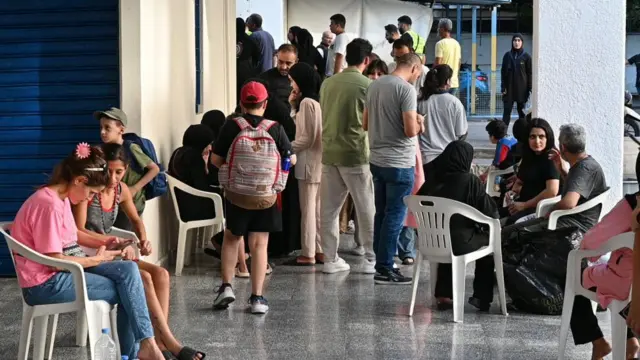 Image source, EPA
Image source, EPALebanese flee southern Lebanon as Israel launches 'extensive' air strikes
More than a quarter of Lebanon is now under Israeli evacuation orders, the UN refugee agency said today.
The agency's Middle East director Rema Jamous Imseis told a press briefing that new evacuation orders to 20 villages in southern Lebanon meant that more than 25% of the country was affected.
"People are heeding these calls to evacuate, and they're fleeing with almost nothing,” she said.
More than 1.2 million people have been displaced from the south of Lebanon, the Beqaa Valley, and parts of Beirut, according to figures from the Lebanese government.
Major cities and villages in the south of the country have emptied out, displacing people to cities further north.
Many have ended up in unsafe and unsanitary conditions in shelters in and around the capital, where schools and shops have been closed to house people.
The sheer volume of displaced people has overwhelmed welfare services, leaving thousands of displaced people on the streets.
Beirut had prepared for just 10% of the eventual wave of people, the mayor Abdallah Darwich told the BBC last week.
“We did not imagine it could be this huge,” he said. “Every day our calculations have become larger and larger.”

